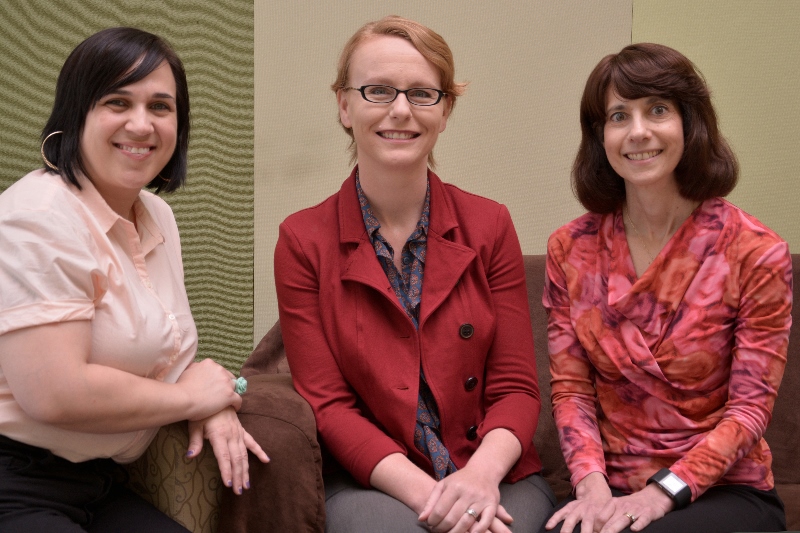
New law requires license for applied behavior analysis
A new law requires a state license to practice applied behavior analysis, which should benefit thousands of Texas families dealing with autism by reinforcing the standard of care and possibly resulting in more affordable services. Two legislative sessions in the making, the law was sought by the Texas Association for Behavior Analysis, or TxABA, whose leadership has strong ties to University of Houston-Clear Lake faculty.
Texas Gov. Greg Abbott signed Senate Bill 589 into law in mid-June.
“This bill received bi-partisan support in the 2017 Texas Legislature, which is heartening and remarkable,” said Sarah Lechago, current president of the TxABA and associate professor of behavior analysis at UH-Clear Lake.
Applied behavior analysis is widely recognized by health care professionals as one of the most effective approaches to the treatment of autism spectrum disorder, Lechago explained. UH-Clear Lake has offered a master’s degree in behavior analysis since 2008.
“It involves careful assessment and environmental modifications to establish and improve important skills like self-help, communication, social, and academic skills. It is also useful for eliminating and preventing challenging behaviors that can hinder progress and learning,” she said.

More than 51,300 Texas residents between the ages of 3-21 were diagnosed with autism spectrum disorder in 2015, the state’s Office of Special Education Programs reported.
“There is a high demand for applied behavior analysis services in Texas,” Lechago said. “This new licensure bill will regulate the practice, strengthen the credibility of the profession and provide critical protections for children with special needs and their families.”
The law calls for the creation of the Texas Board of Behavior Analyst Examiners to be appointed by the state Commission of Licensing and Regulation. The board would administer the licensing program for behavior analysts and assistant behavior analysts. Applicants would meet certain educational requirements, undergo a criminal background check and pass a board examination.
The association sought a similar measure from the 2015 state legislature. It passed the House but didn’t get out of committee in the Senate.
“We had a wonderful team working diligently on this for two legislative sessions, so we are thrilled that the bill passed this year,” said UHCL Associate Professor of Behavior Analysis Jennifer N. Fritz, who was TxABA president in 2015.
“This bill offers much needed protection for families of individuals with special needs, including children with autism. It ensures that qualified individuals are providing services and offers legal recourse for the families in the event of any wrongdoing,” Fritz said.
She said that the law requires that professionals adhere to the ethical and professional guidelines or face a formal investigation. The legislation had wide support from ABA professionals who also worked to pass the bill, Fritz said. Texas is the 28th state to establish licensure for applied behavior analysts. It sets as standards the same regimen required for accreditation from the national Behavior Analyst Certification Board.
UHCL students who are pursuing a master’s degree in behavior analysis are already held to the national standards. Typically, they apply for certification upon graduation. Soon they’ll be able to pursue a license that will not only allow them to work in Texas, but any other state that acknowledges reciprocity licensure.
“It will allow Texas to regulate the profession so that people who call themselves behavior analysts and say they are providing behavior analysis have that level of professionalism,” said Professor of Psychology Dorothea C. Lerman, director of UHCL’s Center for Autism and Developmental Disabilities.
Lerman added that licensure also might encourage more health insurance carriers to cover treatment or open up funding avenues, notably Medicaid. “It’s always good for families to have the ability to pay for these critical services. The expense makes them beyond the reach of so many families,” Lerman said.
“In many states, Medicaid is covering behavior analysis services. I think it’s only a matter of time in Texas. It was in the budget for this legislative session, but a lot of things got cut. Professionals need to be licensed in order to get reimbursed by Medicaid. So licensure of behavior analysts in Texas may open up services to low-income families that can’t afford them,” Lerman said.
UHCL’s center doesn’t currently handle insurance claims, Lerman said. Services are provided to families who can’t afford them through state grants and contracts.
“In the future it might be possible that the Center for Autism and Developmental Disabilities could provide services through Medicaid. If Medicaid also covers applied behavior analysis, it might open the doors for us to provide even more services to low-income families.”
For more information about UHCL’s Center for Autism and Developmental Disabilities, visit www.uhcl.edu/autism-center. To learn more about the master’s program in applied behavior analysis, visit www.uhcl.edu/academics/degrees/behavior-analysis-ma.
“Right now there’s a huge demand for behavior analysts,” Lerman said. “If anything, licensure is going to increase the demand.”
Also published on Medium.

So where are 50,000 40-50 year olds? Or how about 50,000 50-60 year olds? We keep being told that these high numbers have always been with us and now we are just better at recognizing them. Really? Making a license necessary to practice will make the number of ABA teachers go down, not up. Come on, we know autism is a man made disorder caused mainly by vaccines. As the number of required vaccines rises, so will the number of those with an autism diagnoses. Are the taxpayers going to continue footing bills for this? The bubble is leaking for years and soon it will burst. Let’s get honest. Vaccine choice, parental consent. A vaccine safety commission is in order to test for safety.
Maurine Meleck